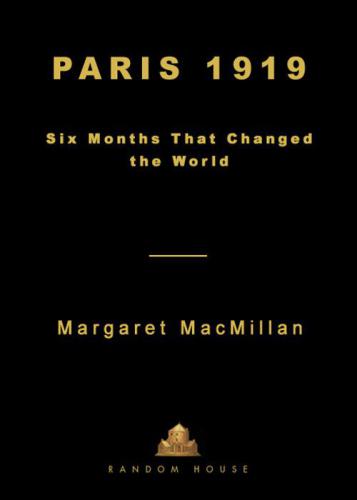
Paris 1919
Six Months That Changed the World
کتاب های مرتبط
- اطلاعات
- نقد و بررسی
- دیدگاه کاربران
نقد و بررسی

Starred review from July 22, 2002
A joke circulating in Paris early in 1919 held that the peacemaking Council of Four, representing Britain, France, the U.S. and Italy, was busy preparing a "just and lasting war." Six months of parleying concluded on June 28 with Germany's coerced agreement to a treaty no Allied statesman had fully read, according to MacMillan, a history professor at the University of Toronto, in this vivid account. Although President Wilson had insisted on a League of Nations, even his own Senate would vote the league down and refuse the treaty. As a rush to make expedient settlements replaced initial negotiating inertia, appeals by many nationalities for Wilsonian self-determination would be overwhelmed by rhetoric justifying national avarice. The Italians, who hadn't won a battle, and the French, who'd been saved from catastrophe, were the greediest, says MacMillan; the Japanese plucked Pacific islands that had been German and a colony in China known for German beer. The austere and unlikable Wilson got nothing; returning home, he suffered a debilitating stroke. The council's other members horse-traded for spoils, as did Greece, Poland and the new Yugoslavia. There was, Wilson declared, "disgust with the old order of things," but in most decisions the old order in fact prevailed, and corrosive problems, like Bolshevism, were shelved. Hitler would blame Versailles for more ills than it created, but the signatories often could not enforce their writ. MacMillan's lucid prose brings her participants to colorful and quotable life, and the grand sweep of her narrative encompasses all the continents the peacemakers vainly carved up. 16 pages of photos, maps.

January 1, 2007
On his trip to China in February 1972, President Richard Nixon exclaimed in a toast to his hosts that his visit, the first such trip by an American President, was "the week that changed the world." However, Nixon, who considered the opening of China his greatest achievement, didn't bask in his glory for long because Watergate would soon put him on the defensive for the remainder of his presidency. MacMillan (history, Univ. of Toronto; "Paris 1919: Six Months That Changed the World") presents a lively narrative of the people, diplomacy, and pomp of this memorable visit, which was orchestrated as much by National Security Advisor Henry Kissinger and Premier Zhou En-Lai as it was by Nixon and Mao. Although the visit did not resolve the major issue for the People's Republic (reunification of Taiwan with mainland China) and for the United States (terminating the Vietnam War), Nixon's visit ended decades of Chinese diplomatic isolation from most of the world and began an important Cold War-era dialog between the two nations. The author is especially good at providing historical background on China and showing how the trip's aftermath reverberated among such American allies as Britain, Taiwan, Australia, and Japan and within its Cold War nemesis, the Soviet Union. Recommended for all public and academic collections.Karl Helicher, Upper Merion Twp. Lib., King of Prussia, PA
Copyright 2007 Library Journal, LLC Used with permission.

























دیدگاه کاربران